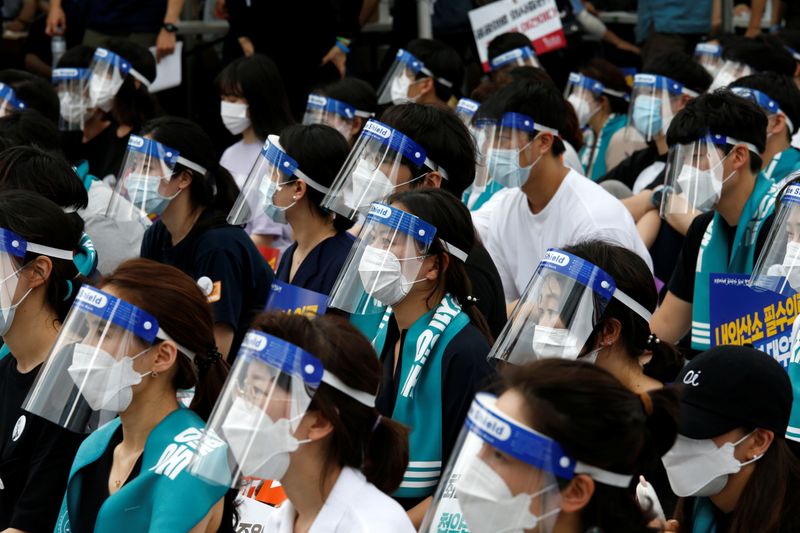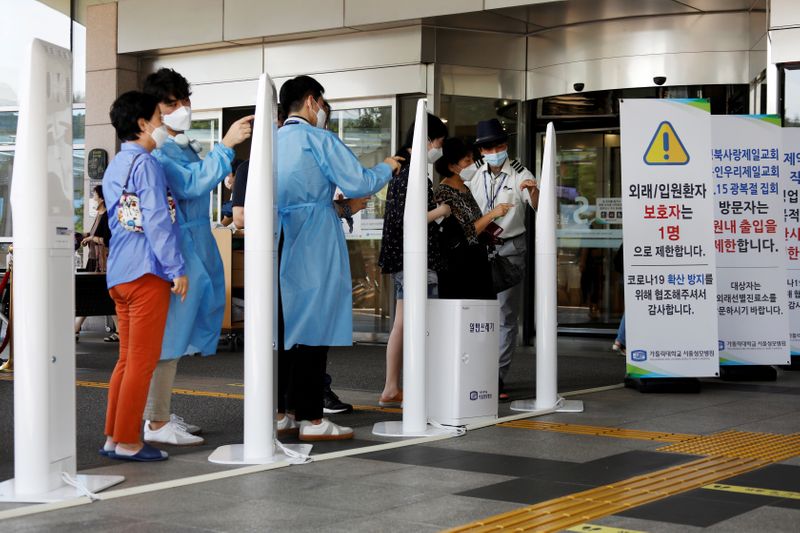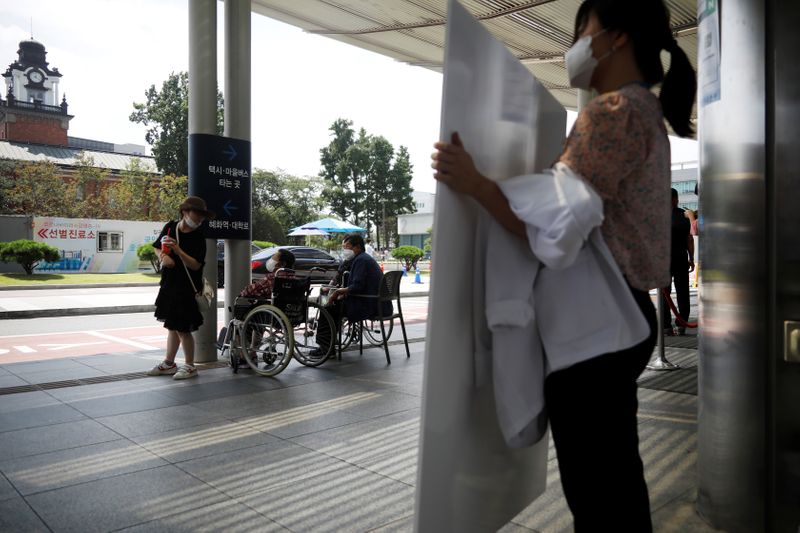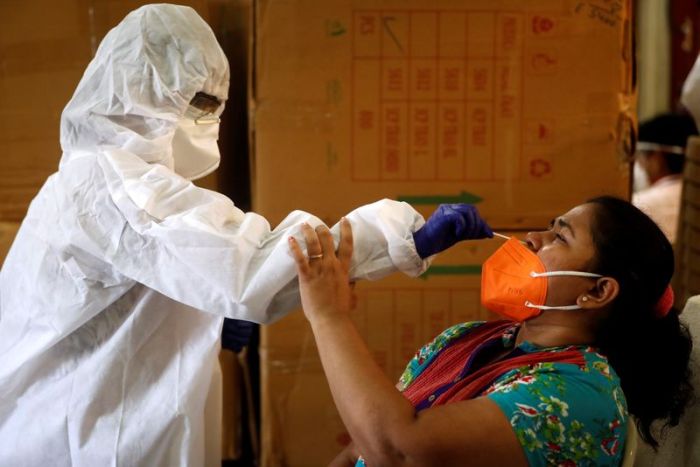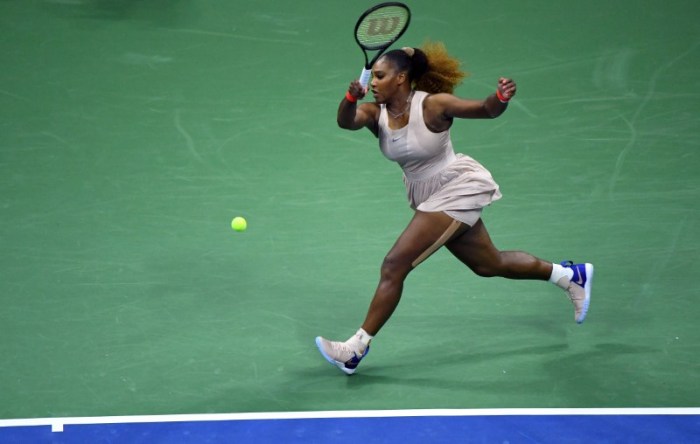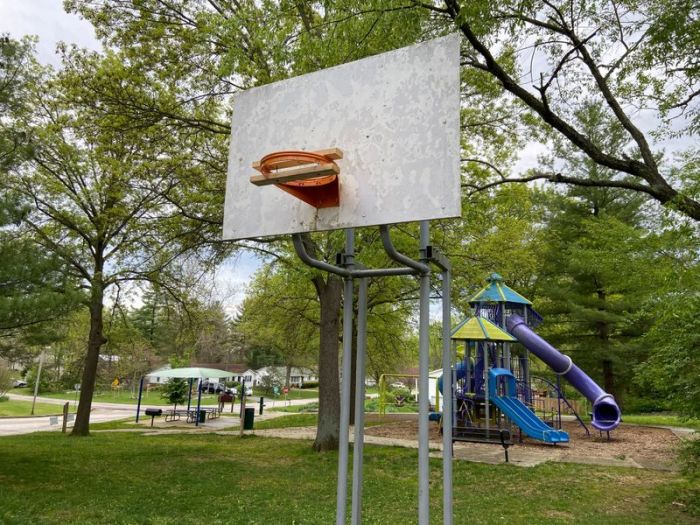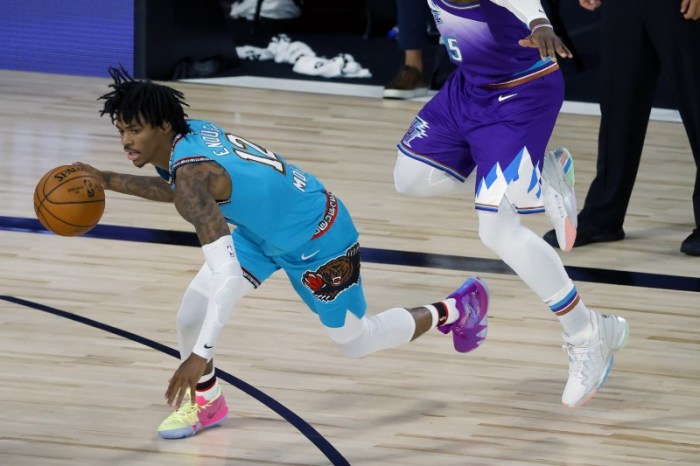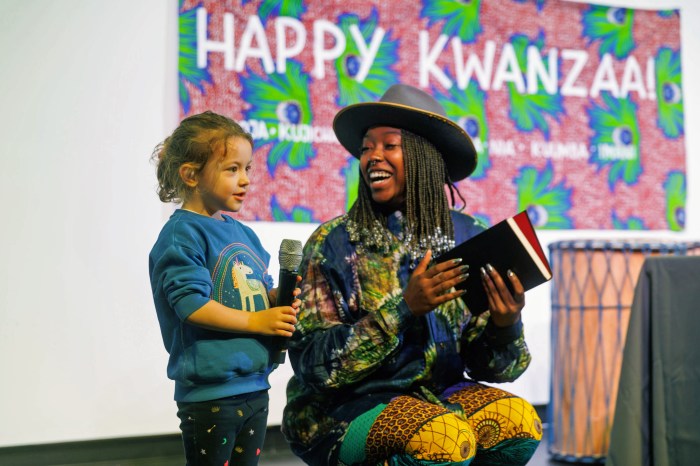SEOUL (Reuters) – South Korea’s top medical body faced a rift on Friday after trainee doctors rejected a deal by its leader to end a two-week-old strike, although the government backed down from reform plans aimed at averting future epidemics.
Some of the trainees vowed to continue the walkout by about 16,000 interns and resident doctors to oppose the government measures, such as increasing the number of doctors and building public medical schools, among others.
The strike has hindered efforts to damp a new wave of coronavirus infections, with 198 new cases on Thursday taking the nation’s tally to 20,842, with 331 deaths, while a surge in critical cases led to a dearth of hospital beds.
The government says its initiative could help tackle similar crises in future, but the doctors say it would merely swell their numbers in cities, without improving medical services and work conditions in rural provinces.
Lim Hyun-taek, a senior official of the Korean Medical Association (KMA), said he had filed a non-confidence motion against its president, Choi Dae-zip, who signed the pact, for not holding sufficient consultations with members.
“We were not informed of the agreement at all,” said Park Ji-hyun, the head of the Korean Intern Resident Association, adding that the deal fell short of its demands.
In a statement, a third group of doctors affiliated to the KMA demanded Choi’s resignation.
Telephone calls to the association to seek comment went unanswered, but earlier Choi said his decision was not unilateral.
Dozens of trainees, some wearing surgical gowns, protested at a parliament building, waving banners condemning the “hasty agreement”.
Choi had urged the trainees to return to work after he signed the deal with Health Minister Park Neung-hoo to end the strike.
“Our shared goals of improving work conditions and building a reasonable medical system cannot be achieved by a strike alone,” Choi said in a statement.
Park said the government would halt the proposed reforms and discuss them again with the healthcare industry and parliament once the virus outbreak had stabilised.
South Korea has ordered another week of social distancing curbs for the region around the capital, Seoul, until Sept. 13, although Thursday’s daily caseload fell below 200 for the first time in more than two weeks.
Park said tougher social distancing rules imposed last week needed more time to show results, adding that bakery and ice cream franchises must adopt on-site dining curbs from Sunday.
(Interactive graphic tracking global spread of coronavirus: open https://tmsnrt.rs/3aIRuz7 in an external browser.)
(Reporting by Hyonhee Shin; Editing by Stephen Coates and Clarence Fernandez)

